Iranian Politician Defends Death By Stoning ‘As Good Islamic Law’
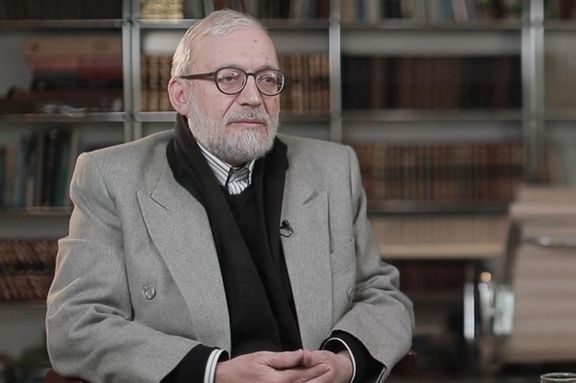
Iranian conservative politician and former diplomat Javad Larijani has defended stoning for adultery, saying it is a good Islamic law protecting “family values.”

Iranian conservative politician and former diplomat Javad Larijani has defended stoning for adultery, saying it is a good Islamic law protecting “family values.”
Stoning, or lapidation, is a method of capital punishment where people throw stones at a person until the subject dies from blunt trauma. It is attested as a form of punishment for unlawful sexual intercourse.
In an interview with Fars website of the Revolutionary Guard Saturday, Iran’s former Secretary of High Council for Human Rights claimed some good laws have been passed by the Islamic Republic to protect women's rights.
He said stoning is one of the good Islamic laws and has been a very nice deterrent so far.
“When we say our women should enter the community, we should have provided them with a very safe work and social environment,” added Larijani stressing that “Stoning is a very important restraining law to protect the marriage contract of families.”
Stoning is not mentioned as a form of capital punishment in the canonical text of the Quran. However, Islamic scholars have traditionally postulated that there is a Quranic verse about it.
Death by stoning came into force in Iran after the 1979 revolution, but the judiciary placed a moratorium in 2002 and it was replaced by the death penalty more than a decade ago.
Victims are put in a ditch filled with sand. The stoning then begins, with rocks relentlessly pummeling the victims until they die.
A doctor recruited to oversee the execution will pause the stoning periodically to check whether the victim is dead. If not, the battering continues.
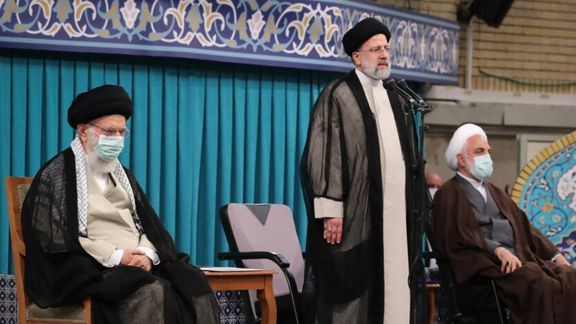
Political pundit Mehrdad Lahouti in Tehran says the divide between officials and the people is so serious as if there was a concrete wall between them.
Lahouti also criticized the Iranian government for not communicating with the world in the right way. Referring to the ideological divide between Iran and the international community, He said: "We should communicate with the world while preserving our values." Lahouti added in his interview with Nameh News website that "In an interconnected world, we cannot remain isolated."
Without mentioning the ongoing protests in Iran, Lahouti said: "The current political atmosphere has convinced some Iranian officials that the system of governance should be changed." He added that this s in fact what the Iranian nation is demanding.
Explaining what he means by changing the system of governance, Lahouti said: "First of all, we need to break the international consensus against Iran by communicating with the world. The second point is that we need to reform our economic structure." He explained that the government currently controls 80 percent of the economy, and this means it does not trust the people.
"The same distrust also exists in the political space. The government does not seek the people's views in matters such as accepting the terms of the FATF while the parliament and the Guardian Council are still undecided about that. The same is also true about the JCPOA."
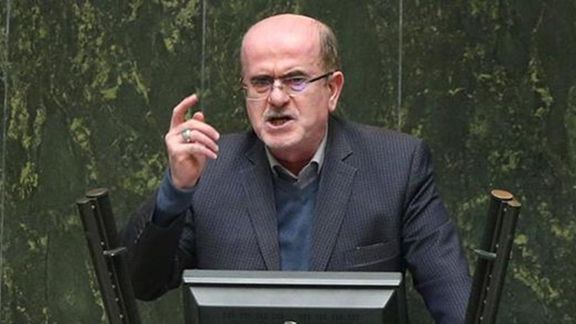
The Financial Action Task Force is an inter-government financial watchdog that has blacklisted Iran, demanding legal reforms to prevent money laundering and financing of terrorism.
Tehran has dragged its feet since 2017 on passing compatible legislation.
Meanwhile, the secretary general of the reformist Jomhouriat party Rasoul Montajabnia warned the government by saying: "You cannot silence the people by using force against them." Referring to harsh treatment of jailed protesters in Iran, he said, "No one can be convinced by use of force." He reiterated: "By use of force you might be able to silence the people, but you cannot convince them and the fire under the ashes will flare up once again on the smallest pretext."
Montajabnia quoted Iranian officials that hundreds of protesters have been killed and thousands wounded so far, and a lot of damage done to public assets. However, he continued, "The hardest blows were dealt to the prestige and image of the Iranian political system and the Islamic revolution while at the same time, a vast divide was created between officials and the people, particularly the Iranian youth."
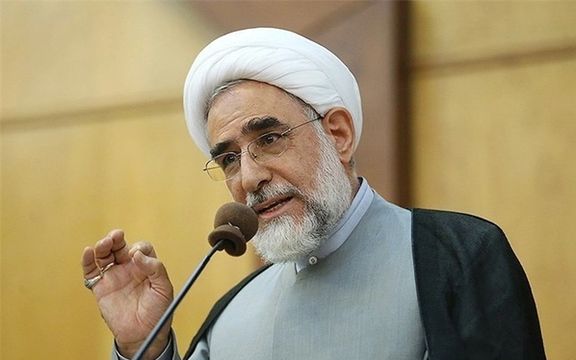
"People's religious beliefs also received a hard blow, and the resulting suspicion of the government's intentions can be hardly compensated for," the reformist figure said.
Referring to the country's current all-conservative political establishment, Montajabnia charged that "A particular gang has taken over the political system by pushing everyone else aside and dividing the people into outsiders and insiders."
A report on Khabar Online website also referred to this divide and asked Expediency Council Ahmad Tavakoli about prospects. Tavakoli issued a "red warning" to the government about this divide and said that the poor might take over the streets.
Khabar Online also quoted Iranian economist Mohammad Khoshchehreh as saying that the current situation is the outcome of the regime's miscalculation in its attempt to concentrate power with conservatives. He said: "Some Iranian politicians believe that people can be controlled better when they are poor. When they are better off they begin to question the government. Now a majority of Iranians have become poor. Part of the middle class has disappeared. Only one fourth of Iranians can afford buying milk. These are serious threats that cannot be ignored."
He added that generally, the pattern of economic growth and development in Iran has become problematic and the system cannot go any further before these problems are solved.
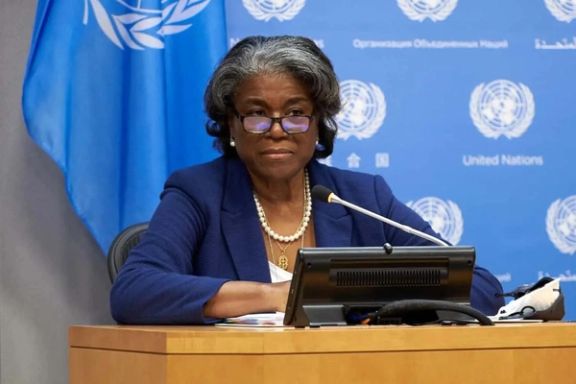
US ambassador to the United Nations Linda Thomas Greenfield has warned about the continuation of arms cooperation between the Islamic Republic of Iran and Russia.
Thomas Greenfield emphasized Friday that that the United States warned the UN Security Council more recently that Iran and the DPRK planned to transfer prohibited materiel to Russia.
“Since August, Iran has transferred hundreds of UAVs to Russia, in violation of UN Security Council Resolution 2231. Russia has been using these Iranian UAVs to strike Ukraine’s energy infrastructure, depriving millions of Ukrainian civilians of electricity, heat, and critical services in the middle of winter. People in Ukraine today are suffering and dying as a result of Iran’s support,” she stressed.
“We believe Iran is now considering the sale of hundreds of ballistic missiles to Russia and also in violation of Council resolutions. We urge Iran to reverse course and not to take these steps. And we urge everyone who supports peace to ask Iran to do the same,” added Greenfield.
The American ambassador further asked the international community to urge Iran to stop military support for Russia.
Ukraine says Iran has delivered 1,700 drones to Russia, hundreds of which have been used to target civilian infrastructure, including the country's electricity system and residential areas.
Ukrainian President Volodymyr Zelensky announced in recent weeks that Russia has received more than 250 other drones from Iran.
Iran has denied supplying weapons to Russia for its war in Ukraine, but foreign minister Hossein Amir-Abdollahian after earlier denials acknowledged in early November that Tehran had supplied drones to Moscow “months before” the Ukraine war, leaving it vague if these were used in the war.
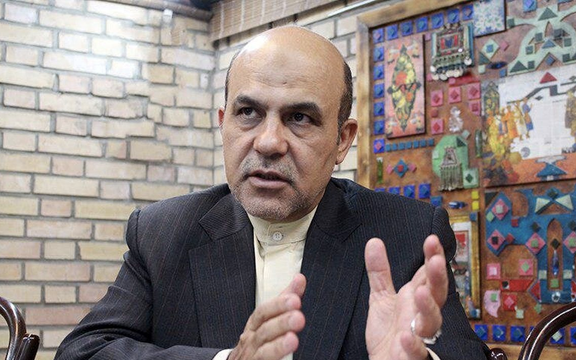
Iran has executed British-Iranian national Alireza Akbari, after sentencing the former Iranian deputy defense minister to death on charges of spying for Britain.
Britain called the execution a barbaric act immediately after announcement by Iran on Saturday and said it would not go unpunished.
"I am appalled by the execution of British-Iranian citizen Alireza Akbari in Iran," British Prime Minister Rishi Sunak said on Twitter. "This was a callous and cowardly act, carried out by a barbaric regime with no respect for the human rights of their own people."
British Foreign Secretary James Cleverly also tweeted to say: "This barbaric act deserves condemnation in the strongest possible terms. This will not stand unchallenged."
British Foreign Secretary James Cleverly had said late on Friday Iran must not follow through with the execution - a call echoed by the US State Department. Britain had described the death sentence as politically motivated and called for his release.
Before the execution was announced, the US State State Department had joined the UK to condemn Akbari's death sentence.
"The United States echoes the British government's strong call for Iran not to proceed with this execution, and to release Mr. Akbari immediately. The charges against Ali Reza Akbari, and his sentencing to execution, were politically motivated. His execution would be unconscionable," Vedant Patel State Department Principal Deputy Spokesperson said.
Mizan website of Iran’s hardliner Judiciary said in a Tweet early on Saturday the sentence had been carried out, without saying when.
"Alireza Akbari, who was sentenced to death on charges of corruption on earth and extensive action against the country’s internal and external security through espionage for the British government's intelligence service ... was executed,” it said.
The report accused Akbari, arrested in 2019, of receiving 1,805,000 euros, 265,000 pounds, and $50,000 for spying.
In a 30-minute audio recording from Akbari received by Iran International on Thursday, he is heard saying that after thousands of hours of interrogation he was forced to confess to acts he never committed.
"After more than 3,500 hours of torture, psychedelic drugs, and physiological and psychological pressure, they took away my will. They drove me to the brink of madness. They instilled in me what they wanted and forced me to make false confessions at gunpoint and threats of death," he said.
Iranian state media broadcast a video on Thursday that they said showed that Akbari played a role in the 2020 assassination of Iran's top nuclear scientist, Mohsen Fakhrizadeh, killed in a 2020 attack outside Tehran which authorities blamed at the time on Israel.
In the video, Akbari did not confess to involvement in the assassination but said a British agent had asked for information about Fakhrizadeh.
Iran’s state media often airs forced confessions by suspects in politically charged cases.
London-Tehran ties have deteriorated in recent months as efforts have stalled to revive Iran's 2015 nuclear pact, to which Britain is a party.
Britain has also been critical of the Islamic Republic's violent crackdown on antigovernment protests, sparked by the death in custody of a young Iranian-Kurdish woman in September.
A British foreign office minister said on Thursday that Britain was actively considering proscribing Iran's Revolutionary Guard as a terrorist organization but has not reached a final decision.
Iran has issued dozens of death sentences as part of the crackdown on the unrest, executing at least four people.
Akbari was a close ally of Ali Shamkhani, now the secretary of Iran’s Supreme National Security Council, who was defense minister from 1997 to 2005, when Akbari was his deputy.
A source close to the Islamic Revolutionary Guard Corps has provided documents to Iran International showing that accusations against Akbari and his death sentence were aimed at weakening Shamkhani’s position in the clerical regime. It seems that President Ebrahim Raisi, Intelligence Minister Esmail Khatib and Interior Minister Ahmed Vahidi are exerting pressure to remove Shamkhani from the post.
With reporting by Reuters
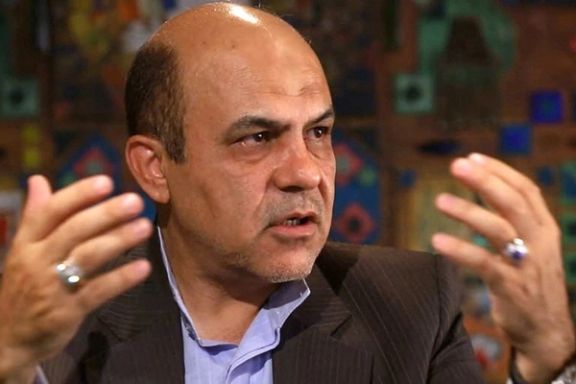
A former Iranian defense ministry official who faces execution on espionage charges says his confessions were made under torture, an audio file has revealed.
Alireza Akbari, who holds dual Iranian-British citizenship and is sentenced to death on charges of spying for the UK, says in the audio file his forced confessions are a result of 3,500 hours of torture.
According to the audio file obtained by Iran International, Akbari says he only confessed because the authorities had promised to release him.
"After more than 3,500 hours of torture, psychedelic drugs, and physiological and psychological pressure, they took away my will. They drove me to the brink of madness. They instilled in me what they wanted and forced me to make false confessions at gunpoint and threats of death," he said.
The regime’s state media reported January 11 that Akbari will be executed for allegedly spying for MI6. In a statement published by Iran's Intelligence Ministry, Akbari was described as "one of the most important infiltrators of the country's sensitive and strategic centers". There are unconfirmed reports that Akbari, who was kept in the notorious Evin prison in Tehran since 2019, has already been executed. Iran’s state media denied the rumors on Friday.
The agents promised him freedom in exchange for forced confessions and said that if he resists, they will send him to the dungeons of Evin, where he would be whipped, Akbari claimed.
He added that the intelligence ministry imposed its desired verdict on the judge, noting that "The prosecutor's office ordered my release with the minimum amount of bail, but the Intelligence Ministry prevented it. The Supreme Court overturned the (execution) sentence, but the Intelligence Ministry threatened the judge and reinstated the verdict."
"I was under temporary detention for more than three years with an illegal sentence, and the judge in the case who intended to annul the sentence suddenly died," he said.
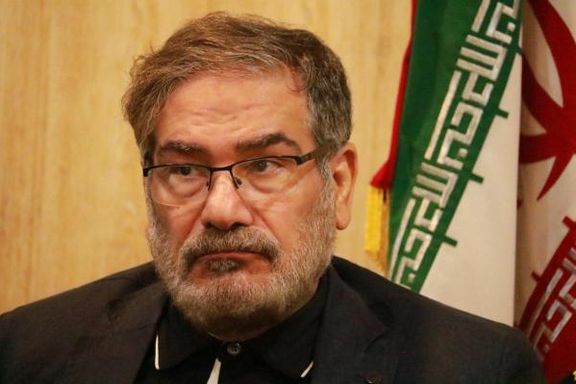
He alleged in this audio file that there is no evidence against him while the Ministry of Intelligence claims he took information from Ali Shamkhani, the secretary of the Supreme National Security Council, and passed it on to Britain. "The Ministry of Intelligence claims that I met Shamkhani in 2018 or 2019 and I gave him a bottle of perfume and a shirt and Mr. Shamkhani gave me secret information about the country, and I passed it to foreigners.”
Akbari says that he told the judge if this allegation is true, why doesn't he summon Shamkhani and former president Hassan Rouhani, to which he replied, "I don't have the power to summon them, but I will destroy you."
Akbari had been deputy defense minister under the reformist President Mohammad Khatami, from 1997 to 2005. He was an advocate of the Iran nuclear deal known as the JCPOA that was eventually signed in 2015 with world powers.
He was also close to Ali Shamkhani, the secretary of the Supreme National Security Council of Iran, who is now rumored to be replaced because his former aide received the death penalty as a “British spy”. A source close to the Islamic Revolutionary Guard Corps has provided documents to Iran International showing that the death sentence for Akbari is aimed at weakening Shamkhani’s position in the clerical regime. It seems that President Ebrahim Raisi, Intelligence Minister Esmail Khatib and Interior Minister Ahmed Vahidi are exerting pressure to remove Shamkhani from the post.
UK foreign secretary James Cleverly Thursday called on Tehran not to execute Akbari. In a tweet, James Cleverly said the Islamic Republic “must halt the execution of British-Iranian national Alireza Akbari and immediately release him.” He further called the move a “politically motivated act by a barbaric regime that has total disregard for human life.”
On Friday, he again tweeted about Akbari, saying that “The Iranian regime should be in no doubt. We are watching the case of Alireza Akbari closely. Iran must not follow through with their brutal threat of execution.”
"Our priority is securing his immediate release and we have reiterated our request for urgent consular access," a UK Foreign Office spokesperson said.
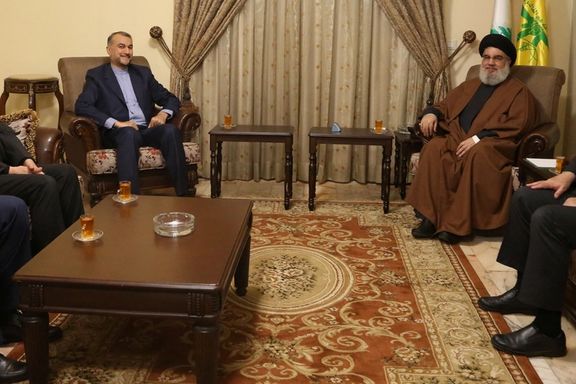
Iran’s Foreign Minister Hossein Amir-Abdollahian traveled to Beirut to meet with senior Lebanese officials and political figures such as Hezbollah chief Hassan Nasrallah Friday.
Hezbollah said in a statement that Nasrallah and Amir-Abdollahian discussed Israel’s new, hardline government and regional developments.
He also held a meeting with Secretary-General of Palestinian Islamic Jihad Ziyad al-Nakhalah during his trip to Lebanon on Friday. The group has been designated a terrorist organization by several countries, including the United States, the European Union, the United Kingdom, Japan, Canada, and Australia.
During a joint press conference with Lebanese Foreign Minister Abdullah Bou Habib, Amir-Abdollahian said, “The Islamic Republic of Iran has been and will remain Lebanon’s friend in hard times.”
“The Islamic Republic of Iran will continue supporting the Islamic resistance in Lebanon and Palestine,” he said, noting, “We consider Lebanon’s security as Iran’s and region’s security.”
For Iran’s clerical regime Lebanon means a country dominated by Hezbollah and a base from where to threaten Israel. Many Shiites see Iran as a source of financial support, but others among Christians and Sunnis resent Hezbollah and Iran’s influence.
Nevertheless, Amir-Abdollahian insisted that “Iran does not interfere in the internal affairs of Lebanon.”
Amir-Abdollahian told reporters in Beirut that he met with Saudi Foreign Minister Prince Faisal bin Farhan Al Saud during a conference in Jordan last month, noting that talks between Tehran and Riyadh are continuing and could eventually restore diplomatic relations severed since 2016. Saudi Arabia has not confirmed Iran’s claims of continuing talks.
“There was an agreement in our points of view to continue with the Saudi-Iran dialogue in what would eventually normalize relations between the two countries,” Amir-Abdollahian said about the December meeting in Jordan.